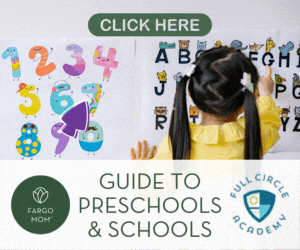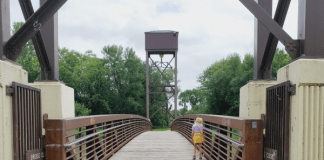When I first wrote about using ASL with our daughter, it was out of excitement for the avenue of communication it opened up for us until it was time for her to start verbally expressing herself.
Toddler Speech Development
And for about the first 18 months of her little life, I had a mile-long list of words (both verbal and sign) that I proudly offered up at every doctor’s visit.
It wasn’t until a series of events led us to a formal speech evaluation that I discovered I still had more to learn. Particularly in regard to understanding exactly how babies and toddlers should be developing their vocabulary and speech.
While it was true that our daughter did have an impressive list of words and signs she could articulate, there were other key skills she was missing.
The speech evaluation for our daughter revealed she had an expressive language delay. Meaning, she lacked the ability to articulate back to us her wants and needs, even though she understands us just fine.
The following are some things I learned from going through the speech evaluation and therapy process with our toddler.
Toddler Speech Development: Things to Know
1. It’s not just about quantity of the words, but also the quality.
Yes, how many words a child can verbalize is important, but what’s equally important is how they say them. For example, “uh-oh” is a fairly common word to check off the early word milestone list, but our daughter struggled and could only say “uh.”
Consistency is also key. In our case, our daughter went through a period of time where she quit using words or signs she had previously used on a daily basis. Her ability to label or identify common objects was also a clear gap when we went through the speech evaluation process (even though it was something my husband had practiced with her regularly).
2. Toys are not just toys!
While we all dread the toy that needs batteries and flashes bright lights, colors, or noise, some of them can actually be helpful in promoting speech development.
We have a battery operated “see and say” toy that looks like an ipad. It was through this toy, our daughter learned to say “kitty” and repeat the sound for kitty. It also caused me to realize just exactly how much repetition she needs to solidify her speech development (quite a bit).
Blocks and puzzles have been great because we can work on functional words like “up, down, on, and off,” in addition to labeling.
3. Reading is key!
If you find yourself supporting a child with a language delay, there are tons of books that are great for encouraging proper toddler speech development because of their “sing song” nature or rhyming elements.
Some of our favorites include Little Blue Truck, Chicka Chicka Boom Boom, and Brown Bear Brown Bear.
The Fargo Library also has a wonderful program for kids under 5 titled 1,000 Books Before Kindergarten. For every 100 books a child reads (even if it’s the same book five times in a row!) the child gets a brand new book for free when they bring their book record back in.
4. Use your resources.
Thanks to social media I have found speech pathologists with accounts that help give me ideas for supporting our daughter at home. Some of them will even take the time to interact with users answering their specific questions!
I like how I can get new ideas to inspire language play with her toys or how to effectively use other tools like apps and podcasts through these accounts, without feeling like I have just handed her an electronic device!
A Speech Evaluation is Vital
The moral of the story is, if aren’t sure if your child’s speech is developmentally on track, get a professional speech evaluation.
This process starts by getting a referral from your doctor to a Speech Language Pathologist (SLP). The SLP will have a standard evaluation tool they use, but to get a whole picture of your child, they will need to know background such as home environment, daily routine, etc.
If the evaluation finds your child does need speech therapy, it’s important to be clear on exactly what kind of speech delays your child is experiencing, so you know how to best help support them at home.
I can happily say all of us have learned so much helping our daughter work through a speech delay. In just a few months of work, she is probably close to being back on track for her age. The continued reinforcement at home as well as twice weekly appointments have given her the skills she needs to ready her debut for the toddler professional public speaking circuit!
















